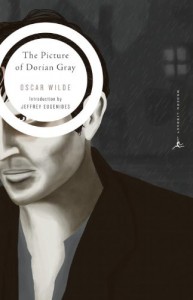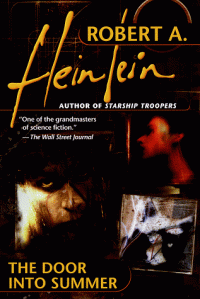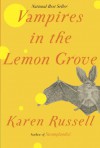Currently reading
 I really enjoyed this short story collection. The writing style, characters, and settings were evocative and emotional. Carlson knows how to write a character who is stuck, then how to get that character unstuck in a way that moves the reader.
It was fun experiencing all these stories by the same author in the same day with the 24 hour book club. I liked finding common themes and motifs running throughout, even when the people and situations he was writing about were quite different from each other.
I really enjoyed this short story collection. The writing style, characters, and settings were evocative and emotional. Carlson knows how to write a character who is stuck, then how to get that character unstuck in a way that moves the reader.
It was fun experiencing all these stories by the same author in the same day with the 24 hour book club. I liked finding common themes and motifs running throughout, even when the people and situations he was writing about were quite different from each other.
Thanks to Richard Dawkins I now know what Blancmange is
Probably not what Dawkins intended me to learn from the Blind Watchmaker, but in the first section of the book I became obsessed with all his references to Blancmange. It seemed to be some kind of pudding!? Made from almonds, this dessert which sets in a mould has a long tradition- Wikipedia says it was even mentioned in the Canterbury Tales! I'm such a huge fan of anything nut flavored, I'm going to have to find a recipe and try it.
 1
1
"
Joseph Campbell, from Joseph Campbell and the Power of Myth with Bill Moyers
"Man will only become better when you make him see what he is like." -Anton Chekhov"
First time reading McSweeney's

We grabbed a copy of McSweeney's from Powell's on a recent visit to Portland. As dedicated eBook readers, I can't even remember the last time we bought a paper book, but apparently paper is the only way to read McSweeney's.
Crime fiction, Latin American or otherwise, is really not my cup of tea. Lucky me, that was the theme for the issue. That said, the overall quality of the writing and translation was pretty high. And there were two stories in the collection I genuinely enjoyed and still think about from time to time. I was really surprised by how much I enjoyed the letters to the editor in McSweeney's, I've never found readers' letters so entertaining!
That said, the overall quality of the writing and translation was pretty high. And there were two stories in the collection I genuinely enjoyed and still think about from time to time. I was really surprised by how much I enjoyed the letters to the editor in McSweeney's, I've never found readers' letters so entertaining!
 1
1
Shotgun Lovesongs: A Novel
 What a great novel. Male and female characters so real and compelling, the setting beautifully rendered, tension artfully built to the very end. The plot would not have made sense with any other group of characters or any other setting, but was unique to the world the author created, and to me that's what made the novel great. Getting to see the story through the eyes of so many of the compelling characters made it loads of fun.
What a great novel. Male and female characters so real and compelling, the setting beautifully rendered, tension artfully built to the very end. The plot would not have made sense with any other group of characters or any other setting, but was unique to the world the author created, and to me that's what made the novel great. Getting to see the story through the eyes of so many of the compelling characters made it loads of fun.
Sartre Explained
 I started this book knowing almost nothing about Sartre- I had some misconceptions about existentialism and continental philosophy, and I knew the plot of Huis Clos- and that was the extent of my knowledge. Having read this book I now have a grasp of some of the concepts that were important to Sartre's philosophy, like bad faith and authenticity. I was often surprised by how well Sartre's ideas lined up with what I've studied about Buddhism, cognitive science, and the more analytic schools of philosophy. Sometimes I had moments of deeply resonating with Sartre's observations and conclusions. This is an example of a book that delivers exactly what it promises, I feel as though an expert has done a great job explaining to me the fundamentals of Sartre's philosophy.
I started this book knowing almost nothing about Sartre- I had some misconceptions about existentialism and continental philosophy, and I knew the plot of Huis Clos- and that was the extent of my knowledge. Having read this book I now have a grasp of some of the concepts that were important to Sartre's philosophy, like bad faith and authenticity. I was often surprised by how well Sartre's ideas lined up with what I've studied about Buddhism, cognitive science, and the more analytic schools of philosophy. Sometimes I had moments of deeply resonating with Sartre's observations and conclusions. This is an example of a book that delivers exactly what it promises, I feel as though an expert has done a great job explaining to me the fundamentals of Sartre's philosophy.
The Picture of Dorian Gray (Modern Library Classics)
 At first I thought the Cartesian dualism of the book, dividing body and soul, was really going to bug me. But then I was intrigued by how the premise was actually a fascinating exploration the mind-body connection. Wilde did a great job of upping the stakes, upping the tension, upping the misery for the protagonist as the story continued. Unfortunately I felt like the story completely wimped out at the end. Things could have turned out so much worse for the protagonist, I was disappointed by how easily his escalating degradation was resolved. I was also deeply intrigued by the character of Henry, and expected much more out of him at the end of the story than was actually delivered.
At first I thought the Cartesian dualism of the book, dividing body and soul, was really going to bug me. But then I was intrigued by how the premise was actually a fascinating exploration the mind-body connection. Wilde did a great job of upping the stakes, upping the tension, upping the misery for the protagonist as the story continued. Unfortunately I felt like the story completely wimped out at the end. Things could have turned out so much worse for the protagonist, I was disappointed by how easily his escalating degradation was resolved. I was also deeply intrigued by the character of Henry, and expected much more out of him at the end of the story than was actually delivered.
Smarter: The New Science of Building Brain Power
 An interesting overview of the current state of the science of intelligence. The author wants to make the point that intelligence can be enhanced, but that we haven't begun to understand what efforts will or will not make a difference. As a result, his quest to up his own IQ a few points is not such an engaging story, since neither he nor the scientists he interviews have any idea before or after his efforts what helped and what didn't. That made the personal angle a little weak.
An interesting overview of the current state of the science of intelligence. The author wants to make the point that intelligence can be enhanced, but that we haven't begun to understand what efforts will or will not make a difference. As a result, his quest to up his own IQ a few points is not such an engaging story, since neither he nor the scientists he interviews have any idea before or after his efforts what helped and what didn't. That made the personal angle a little weak.
The Door into Summer
 Amazing setup of plot and protagonist, artful setting of two distinct futuristic time periods- not to mention I love a good time paradox story. I was also impressed by the way Heinlein portrayed intellectual property snafus and got into the practical mind of an engineer. I did feel that the setup to the story was better than its conclusion. By the end of the setup, I had already guessed the necessary conclusion, so much of the tension was already gone as I watched events unfold as predicted. I think it's possible to play around with a time paradox story while better maintaining the tension. The ending for the protagonist was in character, was quietly and humanly touching, but I did find it pretty pedestrian and ultimately uninspiring.
Amazing setup of plot and protagonist, artful setting of two distinct futuristic time periods- not to mention I love a good time paradox story. I was also impressed by the way Heinlein portrayed intellectual property snafus and got into the practical mind of an engineer. I did feel that the setup to the story was better than its conclusion. By the end of the setup, I had already guessed the necessary conclusion, so much of the tension was already gone as I watched events unfold as predicted. I think it's possible to play around with a time paradox story while better maintaining the tension. The ending for the protagonist was in character, was quietly and humanly touching, but I did find it pretty pedestrian and ultimately uninspiring.
 1
1
 The theme of separation of church and state was lively and spurred some discussion. Would have enjoyed reading some more compelling arguments against the position I feel is correct.
The theme of separation of church and state was lively and spurred some discussion. Would have enjoyed reading some more compelling arguments against the position I feel is correct.
Duke: A Life of Duke Ellington
 Ellington, his life, and work, are pretty interesting, but the way this biography was written was not. The biographer established an idea of Ellington's character in the beginning, and that concept never evolved or changed, just continually stayed the same. From a narrative point of view it's more interesting to experience the evolution of a biography subject. I also enjoy experiencing a vivid sense of place and time in the historical aspect of a biography, and I never felt twenties, thirties, forties, or fifties, come alive. Writing descriptions of music is difficult. Teachout did an okay job, but nothing standout.
Ellington, his life, and work, are pretty interesting, but the way this biography was written was not. The biographer established an idea of Ellington's character in the beginning, and that concept never evolved or changed, just continually stayed the same. From a narrative point of view it's more interesting to experience the evolution of a biography subject. I also enjoy experiencing a vivid sense of place and time in the historical aspect of a biography, and I never felt twenties, thirties, forties, or fifties, come alive. Writing descriptions of music is difficult. Teachout did an okay job, but nothing standout.
Dubliners (Oxford World's Classics)
 I thoroughly enjoyed all the stories relating to women and domestic life. They touched on what it means to be human with such a light hand in such a profound way. I had a harder time connecting with the more masculine, political, bar and drinking stories. The ending of The Dead (final novella in the collection of short stories) was worth reading the entire book many times over- heartbreakingly beautiful, some of the most moving writing I've ever read.
I thoroughly enjoyed all the stories relating to women and domestic life. They touched on what it means to be human with such a light hand in such a profound way. I had a harder time connecting with the more masculine, political, bar and drinking stories. The ending of The Dead (final novella in the collection of short stories) was worth reading the entire book many times over- heartbreakingly beautiful, some of the most moving writing I've ever read.
The Three Stigmata of Palmer Eldritch
 I think I really liked it- but I'm not entirely sure what happened. Classic time-warping, reality-bending, mind-twisting SF. Lots of fun, but stretch before reading!
I think I really liked it- but I'm not entirely sure what happened. Classic time-warping, reality-bending, mind-twisting SF. Lots of fun, but stretch before reading!
Shakespeare: The World as Stage (Eminent Lives)
 With the right expectations, a very enjoyable read. I was expecting more detailed information about Shakespeare's life and less general info about the time and place he lived. But this was really a book on how we know what we know about Shakespeare- and what we know is very little. Kudos to Bryson for taking a firm and well-reasoned stand against the idea that Shakespeare was not the author of his plays.
With the right expectations, a very enjoyable read. I was expecting more detailed information about Shakespeare's life and less general info about the time and place he lived. But this was really a book on how we know what we know about Shakespeare- and what we know is very little. Kudos to Bryson for taking a firm and well-reasoned stand against the idea that Shakespeare was not the author of his plays.








